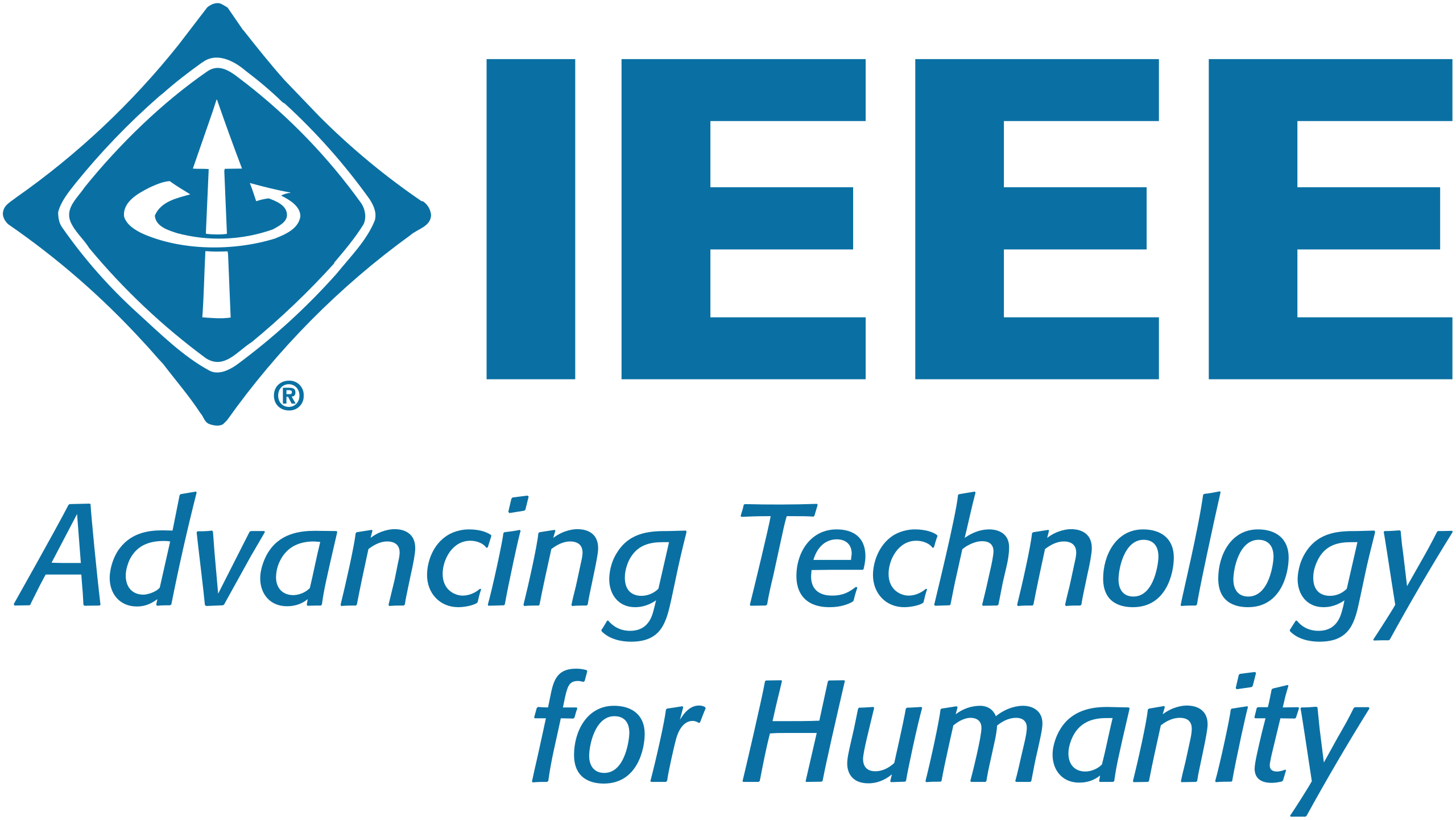 |
IEEE Round Table Discussion |
|
The Role, Influence, and Future of Generative AI in Higher Education |
||
 |
|
Panelist |
|
|
Prof. Muhammed Kasim S |
|
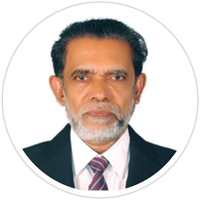 |
Prof. Muhammed Kasim S is the Chair of the IEEE Kerala Section. A visionary leader, his active contributions and relentless pursuit of excellence has brought the Section much credit. He is also the Professor and Head of the EEE Department, Musaliar College of Engineering, Chirayinkeezhu. Prof. Kasim graduated from TKM College of Engineering, Kollam with a Bachelors in Science, Electrical Engineering before completing his postgraduate studies in College of Engineering, Trivandrum. |
| |
|
|
Prof. Viraj Kumar |
|
 |
Dr Viraj Kumar is a Visiting Professor at the Kotak-IISc AI-ML Centre at IISc Bangalore. His research focuses on Computer Science Education including Generative AI for Computing Education. He serves as an elected member of the ACM India Council and chairs its Educational Initiatives Committee. He served on a Ministry of Education Committee to rethink the Engineering Education curriculum in response to Generative AI. Previously, Dr Viraj has served as a contributor for developing the AICTE Model Curriculum for CSE (2022) and as a consultant to the Kasturirangan Committee for drafting the National Education Policy (NEP 2020). |
|
|
|
|
Mr.Vinod Neelanath |
|
 |
Vinod Neelanath is the General Manager and Chief Product Officer at UST SmartOps, where he leads the research, development, and deployment of intelligent automation products. With over 25 years of experience, including 21 years at Ericsson as VP of Development & Operations, he has expertise in Network AI, Edge Compute Solutions, and digital transformation for T-Mobile’s BSS program. Vinod earned an MTech in AI and Data Science (Gold Medalist) from IIIT Kottayam and a BTech in Electronics and Communications from CET, along with executive training from prestigious institutions. His expertise in AI and automation positions him as a thought leader in technology innovation. |
|
Mrs. Madhuri D M |
|
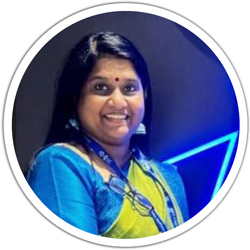 |
Mrs. Madhuri D. Madhavanpillai is a Program Director in Data and AI at IBM India Software Labs in Kochi, with over 21 years of experience in software and hardware development, IBM Cloud services, and client program management, especially in cloud security. She leads global teams in creating AI-driven applications using Agile and DevOps methodologies. Madhuri has managed significant client transitions, including BNP Paribas to IBM Cloud, and plays a key role in promoting diversity in tech, mentoring women, and serving as Co-Convenor for Tech Adoption and Digital Transformation for the CII Kerala chapter. She advocates for Agile practices to improve organizational culture and client satisfaction while mentoring upcoming technology leaders. |
| Ms. Nikita Pinto Senior Artificial Intelligence Academic Liaison for Asia-Pacific at MathWorks |
|
 |
Ms. Nikita Pinto is the Senior Artificial Intelligence Academic Liaison for Asia-Pacific at MathWorks. She is interested in understanding AI techniques and applying them to scientific and engineering problems. She works with educators, researchers, and students across India, China, Japan, Korea, Singapore and Australia to help them incorporate AI along with their domain expertise. Nikita has a deep-seated fascination with the rapidly evolving landscape of Generative AI and its potential to revolutionise research in engineering and science. She has a Master's degree from IIT Madras, where she worked on applying statistical signal processing to underwater acoustics. She has worked on interdisciplinary projects with international collaborators, Government research labs, and independent researchers. |
|
Dr. Asharaf S |
|
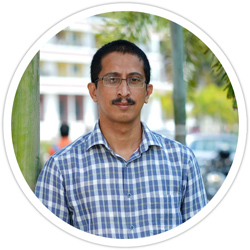 |
Dr. Asharaf S is a computer engineer/scientist with extensive exposure in algorithms for machine learning. He is currently serving as the Dean of Development at the Digital University Kerala (DUK) in Trivandrum. He is also the Director of the Kerala Blockchain Academy, a center of excellence under DUK. He received his PhD and Masters in Computer Science from IISC, Bangalore. After B.Tech in CUSAT, he has worked as a lecturer at T.K.M. College of Engineering, Kollam, and after PhD he has worked as a Research Scientist at America Online (AOL) R&D Labs and as an Assistant Professor at IIM, Kozhikode.He is a recipient of IBM outstanding PhD student award 2006, IBM Shared University Research Grant 2015, IBM Open Science Collaboration Programme Grant 2017, and DBT/BIRAC/Bill & Melinda Gates Foundation Research Grant. He has published three books and more than 50 research papers in international journals and conferences. |
|
Dr. M.V. Rajesh |
|
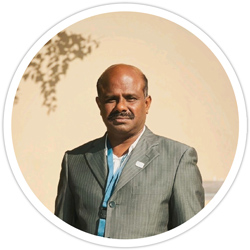 |
Dr. M.V. Rajesh is the Principal of the College of Engineering Poonjar and an experienced academic leader with a strong background in engineering education and research. He holds a B.Tech, M.Tech, and Ph.D. and has played significant roles in academia, professional societies, and consultancy.Dr. Rajesh serves as the Chair of the IEEE Kerala Strategic Initiative on Academia, emphasizing his dedication to fostering collaboration between academia and industry. He has also been the Vice Chairman of IETE Kochi Centre and held leadership roles in the Computer Society of India (CSI). Additionally, he has contributed as a research supervisor, doctoral committee member, and consultant for organizations like DRDO and AICTE.Beyond academics, Dr. Rajesh has worked on initiatives like the “Atal Tinkering Lab” promoted engineering education, and participated as a jury member in various technical events, reflecting his commitment to innovation and academic excellence. |
|
Date and Time : 10th December, 09:00AM Program Content Opening Remarks/Inauguration |
||||
| Session 1 – The Role of Generative AI in Teaching and Learning | ||||
|
Key Topics:
|
||||
| Session 2 – The Influence of Generative AI on Research and Academic Integrity | ||||
|
Key Topics:
|
||||
| Session 3 – The Future of AI-Powered Higher Education: Opportunities and Challenges | ||||
|
Key Topics:
|
||||
| Session 4 – Ethical and Legal Frameworks for Integrating Generative AI in Higher Education | ||||
|
Key Topics:
|
||||
| Closing Session – Crafting the Roadmap for AI-Driven Transformation in Higher Education | ||||
|
Key Topics:
|
||||
|
Closing Remarks and Future Directions Summary of key takeaways from the round table and outlining steps for the future. Networking Session and Informal Discussion An opportunity for participants to network with panelists, industry experts, and peers to discuss collaboration and future projects. Key Outcomes Expected
Event Flow
|
||||
